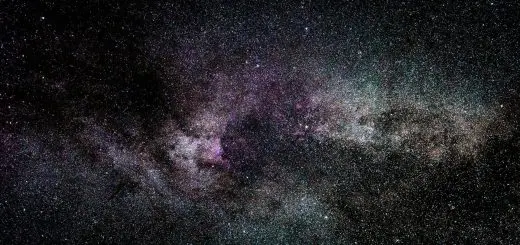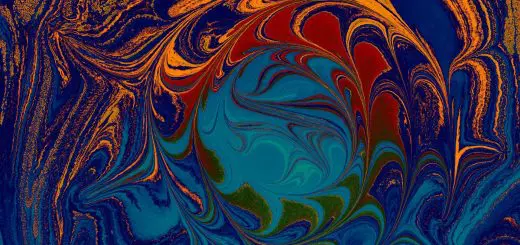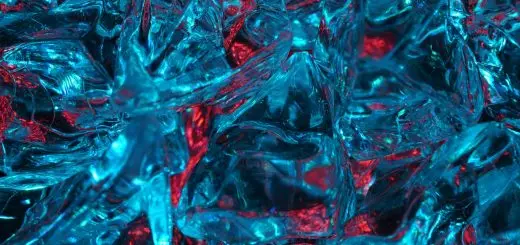The Wolf in Norse Mythology: Fenrir and His Legacy

Looking for more amazing products? Check out our online store and explore our collection here! Happy shopping!
Before diving in, please note: This post is for informational purposes only. If you’d like to know more about how we approach topics, feel free to check out our friendly Disclaimer Page.
Hey there, amazing readers! 
We’re committed to delivering quality posts, and your support (even just sticking around despite the ads) means everything to us. So, bear with us, and thanks for helping us keep the good vibes rolling. Now, on to the fun stuff!
TRANSLATE BUTTON AT THE END OF THE ARTICLE
Introduction: The significance of wolves in Norse mythology
In Norse mythology, wolves hold a significant place, representing both ferocity and cunning.
They are often associated with the god Odin, who had two wolves, Geri and Freki, as constant companions.
Wolves were seen as powerful and respected creatures, embodying qualities such as strength, loyalty, and independence.
However, among the wolves in Norse mythology, one stands out above all others – Fenrir, the monstrous wolf.
Origins of Fenrir: The monstrous wolf in Norse lore
Fenrir, also known as Fenrisúlfr, was the son of the trickster god Loki and the giantess Angrboða.
From a young age, it was clear that Fenrir was no ordinary wolf.
As he grew, so did his strength and size, eventually becoming a creature of immense power and ferocity.
His appearance struck fear into the hearts of both gods and mortals alike.
Parentage of Fenrir: Ancestor of chaos and destruction
Being the offspring of Loki, the god of mischief, and Angrboða, a giantess associated with chaos, it was no surprise that Fenrir embodied destructive tendencies.
His very existence foretold of the chaos and destruction he would bring upon the world.
Fenrir was destined to play a pivotal role in the events leading up to Ragnarok, the end of the world in Norse mythology.
Prophecies about Fenrir: The doom of the gods foretold
Several prophecies foretold the role Fenrir would play in the events leading up to Ragnarok.
One such prophecy stated that Fenrir would break free from his chains and wreak havoc upon the world.
Another prophecy predicted that during Ragnarok, Fenrir would devour Odin, the All-Father, before being ultimately defeated by Odin’s son, Vidar.
Binding of Fenrir: The tale of the unbreakable chain
To prevent Fenrir from fulfilling his destiny of destruction, the gods devised a plan to bind him.
They commissioned the dwarves to create a chain strong enough to hold the monstrous wolf.
However, Fenrir was no fool and sensed the trap.
Only through trickery and deception were the gods able to convince Fenrir to allow himself to be bound.
Ragnarok: Fenrir’s role in the final battle of Norse mythology
During Ragnarok, Fenrir played a crucial role in the events leading to the end of the world.
He broke free from his chains and joined forces with other monstrous beings to bring about the downfall of the gods.
Despite his immense power, Fenrir was ultimately defeated by Vidar, who avenged his father Odin’s death by slaying the monstrous wolf.
Legacy of Fenrir: How his story continues to influence culture
The legacy of Fenrir lives on in Norse mythology, serving as a cautionary tale about the dangers of unchecked power and the consequences of embracing chaos.
His story continues to inspire artists, writers, and creators to this day, with adaptations of his tale appearing in various forms of media.
Symbolism of Fenrir: Representation of primal forces
Fenrir symbolizes the primal forces of chaos and destruction that exist in the world.
His untamed nature and insatiable hunger reflect the darker aspects of the natural world, reminding us of the fragility of order and the inevitability of chaos.
Fenrir in modern media: Pop culture adaptations and interpretations
In modern media, Fenrir has been portrayed in various forms, from movies and television shows to video games and literature.
His character has been reimagined and adapted to suit different narratives, showcasing the enduring appeal of this monstrous wolf in popular culture.
Comparisons with other mythological wolves: Odin’s wolves and more
While Fenrir is perhaps the most well-known wolf in Norse mythology, there are other wolves of significance as well.
Odin’s wolves, Geri and Freki, represent loyalty and companionship, standing in stark contrast to the destructive nature of Fenrir.
The comparison between these wolves highlights the duality of the wolf symbol in Norse mythology.
Fenrir’s character analysis: Complexities of the monstrous wolf
Fenrir’s character is layered and complex, embodying both the ferocity of a wolf and the cunning of his trickster father, Loki.
His actions are driven by a desire for power and revenge, making him a formidable foe for the gods.
Despite his destructive nature, Fenrir’s story serves as a reminder of the consequences of unchecked ambition and hubris.
Conclusion: Fenrir’s lasting impact on Norse mythology and beyond
Fenrir’s legacy as the monstrous wolf in Norse mythology endures, serving as a cautionary tale about the dangers of chaos and destruction.
His story continues to captivate audiences and inspire creators across various forms of media, cementing his place as one of the most iconic figures in Norse lore.
As we reflect on Fenrir’s role in the events leading up to Ragnarok, we are reminded of the eternal struggle between order and chaos, a theme that resonates throughout history and mythology.

The Enlightenment Journey is a remarkable collection of writings authored by a distinguished group of experts in the fields of spirituality, new age, and esoteric knowledge.
This anthology features a diverse assembly of well-experienced authors who bring their profound insights and credible perspectives to the forefront.
Each contributor possesses a wealth of knowledge and wisdom, making them authorities in their respective domains.
Together, they offer readers a transformative journey into the realms of spiritual growth, self-discovery, and esoteric enlightenment.
The Enlightenment Journey is a testament to the collective expertise of these luminaries, providing readers with a rich tapestry of ideas and information to illuminate their spiritual path.
Our Diverse Expertise
While our primary focus is on spirituality and esotericism, we are equally passionate about exploring a wide range of other topics and niches 

To ensure we provide the most accurate and valuable insights, we collaborate with trusted experts in their respective domains 
Our blog originally focused on spirituality and metaphysics, but we’ve since expanded to cover a wide range of niches. Don’t worry—we continue to publish a lot of articles on spirituality! Frequently visit our blog to explore our diverse content and stay tuned for more insightful reads.
Hey there, amazing reader! 
Check out our store here and take a peek at some of our featured products below! Thanks for being awesome!










